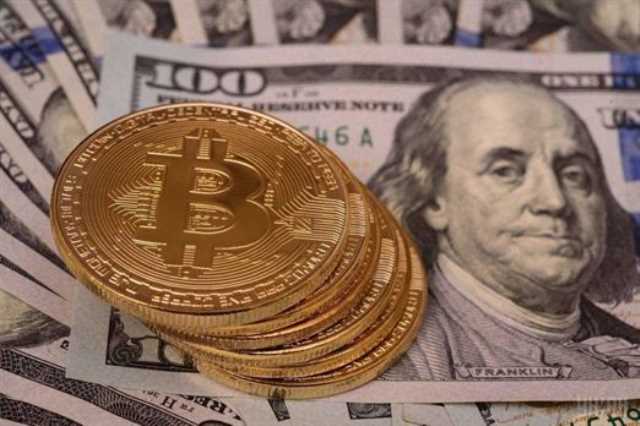PRODUCT Description
Thanks to its market-leading origins, the token has remained number one. At the time of writing, Bitcoin’s market cap has grown to over $1 trillion and has outpaced the growth of all other coins. Due to lower memory requirements, Bitcoin mining is compatible with ASIC (Application Specific Integrated Circuit) devices, rather than standard computer hardware. ASICs are specialized hardware devices that are tailored to mining Bitcoin and other cryptocurrencies. ASIC devices are expensive, which limits them to larger centralized organizations.
You’re our first priority.Every time.
- Bitcoin was created primarily as a decentralized digital currency, aiming to serve as a peer-to-peer electronic cash system that allows individuals to send and receive value without the need for a central authority.
- Another positive to Bitcoin’s case is the approval of spot Bitcoin ETFs by the United States Securities and Exchange Commission (SEC) which led to billions in traditional investments.
- Ethereum is a programmable blockchain that finds application in numerous areas, including DeFi, smart contracts, and NFTs.
- Since ethereum’s launch in 2015, there’s no question that bitcoin and ETH have been spectacular investments.
- Bitcoin, on the other hand, has implemented the Segregated Witness (SegWit) upgrade and is developing a layer-two scaling solution called the Lightning Network.
- Ethereum on the other hand is a network built for the development of decentralized applications (dapps).
Bitcoin has a limited supply of 21 million coins, which is designed to ensure that the value of each coin is protected and can increase over time as demand grows. The process of generating new bitcoins is called mining, and it involves solving complex mathematical equations using specialized computer hardware. For example, a system called Rootstock is being developed as an “attachment” for the Bitcoin blockchain, which allows smart contract operations to occur off-chain. This could one day allow for dapps to be built that are backed by the Bitcoin network, very similar to what we’ve seen develop with Ethereum. With further technical upgrades, applications may be built to run on the Bitcoin blockchain giving it some of the functionality that smart contracts bring to Ethereum. Bitcoin has dominated the cryptocurrency markets since its inception in 2009 and was for a while the only option for cryptocurrency investors.
Should I buy Bitcoin or Ethereum?
Although Ethereum remains the largest decentralized network in terms of smart contracts, its token ETH has yet to tap global adoption on the same wave as Bitcoin in recent years. Most users point to Bitcoin as a store of value attracting retail and institutional investors amid a change in macroeconomic factors. The cryptocurrency has seen rapid growth in its blockchain and value since its 2015 launch.
Best Cryptocurrency Exchanges for BTC and ETH
The dynamic duo have common characteristics but also bear significant differences. Through these applications, Bitcoin and Ethereum are pioneering new financial paradigms and providing innovative solutions to longstanding problems across various industries. Their respective coins, BTC and ETH, Bitcoin vs. Ethereum are similar in that they are both subject to crypto volatility, but BTC is much more valuable than ETH. BTC is priced higher than ETH, reaching almost $US73,000 in March 2024. ETH, on the other hand, peaked at around $US4800 in November 2021 and is currently trading at around $US3,800.
Performance of BTC vs. ETH
Ethereum and Bitcoin trade heavily on centralized cryptocurrency exchanges, and market forces determine their values. Since everyone can see identical copies of the Bitcoin blockchain, nobody can copy and paste their digital money and spend it twice. Doctoring one transaction is hard enough, but you’d also have to change every subsequent transaction since each one references its forerunners. Bitcoin was developed solely to facilitate decentralised payments, allowing people to send and receive payments without an intermediary such as a bank. Ethereum, on the other hand, was designed to do more than just send and receive ETH. While Ethereum does enable payments using its internal ETH cryptocurrency, its scope is much broader than bitcoin’s—by design.
- And with Ethereum, things can get even more wild, thanks to decentralized finance (DeFi) protocols.
- Proof of Work (PoW) is a consensus mechanism that requires miners to compete to solve complex mathematical problems to verify transactions and add new blocks to a blockchain.
- Investment strategies for Bitcoin often focus on its value as a digital store of wealth, with methods like buying and holding or investing through Bitcoin ETFs.
- Contact the product issuer directly for a copy of the PDS, TMD and other documentation.
- Bitcoin is a peer-to-peer virtual currency designed as an alternative to traditional or fiat money.
- Any time you carry out a transaction with either Ethereum or Bitcoin, you’ll be charged an amount that helps pay for the network’s technology.
What’s the difference between Bitcoin and Ethereum?
Bitcoin was developed as a solution to the debasement of national fiat currencies and an alternative to a centralized permissioned financial system. Ethereum’s superior support for advanced functionality like smart contracts makes it more versatile for constructing decentralized applications, whereas bitcoin’s scripting language is comparatively limited. On the other side, Ethereum’s transition to a Proof of Stake (PoS) consensus mechanism markedly reduced its energy consumption. By eliminating the need for energy-intensive mining, Ethereum’s energy usage decreased by an estimated 99%, positioning it as a more environmentally friendly blockchain network. This shift not only addressed the growing concerns around the carbon footprint of cryptocurrency operations but also set a precedent for other blockchain networks to consider more sustainable consensus mechanisms.
Comparing Ethereum vs Bitcoin: What are the Differences?
Bitcoin price vs. ethereum price
- - 574
- ! Без
- ! Без рубрики
- !Fortune tige
- "fc Seoul Vs Jeju United Match Prediction & Betting Ideas With Live Odds - 490
- "mostbet Az-90 Kazino Azerbaycan Lap Yüksək Bukmeyker Rəsmi Sayt - 878
- "mostbet En Vivo: Haz Tus Pronósticos Sobre Directo Y Disfruta De Su Buffering" - 786
- +btoct
- +novPU
- 1
- 1win
- 1Win AZ Casino
- 1Win Brasil
- 1win Brazil
- 1WIN Casino Brasil
- 1win India
- 1WIN Official In Russia
- 1win Turkiye
- 1win uzbekistan
- 1winRussia
- 1wins-moldova.mdro-md x
- 1x-bet.downloa
- 1xbet egypt
- 1xbet Russian
- 1xbet3
- 1xbet32
- 1xbet4
- 1xbet51
- 1xbet52
- 1xbet61
- 1xbet62
- 1xbet82
- 2
- 2024te-Yeni-Üye-Olmanın-Avantajları-Deneme-Bonusu-Veren-Casinoslar.html
- 20Bet Deutschland
- 212
- 222
- 22bet Schweiz
- 26
- 2nd level
- 3
- 3dinvesting.com
- 4
- 5
- 5trucks.ru 500
- 6
- 7 slots
- 7slots
- 7к-казино
- 8
- 9
- a16z generative ai
- a16z generative ai 1
- acad
- Accessories
- adaptationfestival.gr
- adm
- adobe generative ai 1
- adobe generative ai 2
- afyonsosyetepazari.com 1
- AI Chatbot News
- AI News
- aliexpres.com.ua - офіційний сайт Аліекспрес в Україні
- alizeyeniufuklar.com
- almaradio.gr
- amminex.net 2
- amnistiepdm.org - Official Website of Safe Casino Sites in South Korea
- anbhoth.ie
- ankaratarotfali.com 2
- antalyaerenhali.com 1
- antalyaerenhali.com 2
- anushkatrivedi.comen-bd x2
- Apex-Clover-Link-Slot-Oyna---Kazançlı-Çevrimler.html
- archpoints.gr
- Artificial intelligence
- Artificial intelligence (AI)
- asian brides
- augustent.com 1
- Ausländische Online Casinos Schweiz – siehe offizielle Website fanarbeit.ch
- auto-info.hr 2
- aviator-game-official.netlify.app 1
- aviatorSITESI_may
- axiomaltd.ru 1500
- Bahigo Schweiz
- ballybunionartsfestival.ie bCasino
- bambturkiye.com 1
- BankOnBet
- bashpirat.ru 2000
- batery.org.in3
- BC.GAME Casino Schweiz
- bedava-slot-siteleri.com 1500
- bedava-slot.com 1500
- bedpage
- behar.hr 2
- belanok.mk
- best-news
- besyohocam.com 2
- bet10
- bet10 casino
- bet10-casino
- bet442casino.co.uk - UK
- Betmgm Bonus Code Nyp1500dm Grants A 20% Deposit Match Or $1, 500 Initial Bet For Broncos-saints 'thursday Night Football' - 862
- Betonred Casino Schweiz
- betspecial.co.uk 2
- Betting Company Mostbet App Online Sports Betting - 111
- bh_aug
- bh_sep
- bhnov
- bhoct
- BHS-Links
- BHTopJun
- Big-Bass-Bonanza-Blaze-Oyun-İncelemesi.html
- Big-Bass-Bonanza-İkili-Kazanma-Stratejileri-ve-İpuçları.html
- Bigger-Bass-Bonanza-Oyna-Ücretsiz---Slots-Oyunu.html
- bilimufku.com 2000
- biznisakademija.hr
- biznisakademija.hr 2
- Bizzo Casino – Offizielle Website in der Schweiz – editori-sesi.ch
- Bizzo Casino Schweiz
- black-seo-links
- Blog
- Blog Lk
- bonanzasitesi_may
- Bonus-Veren-Casino-Oyunları-En-İyi-Seçenekler.html
- Bookkeeping
- Bookmaker Şirkəti Mostbet: Formal Mobil Versiya Icmalı - 336
- bootstrap-3.rucss.php 900
- borka.org.mk
- braintreerec.com2
- brunch-cafe.ru
- BT_Prod_aug
- bt_sep
- btbtnov
- BTTopJun
- Buon Ma Thuot Itinerary: Explore Buon Ma Thuot in 1,2,3, and 4 Days - 115
- Buon Ma Thuot Itinerary: Explore Buon Ma Thuot in 1,2,3, and 4 Days - 534
- cam-girls
- camp-hockey.ru 500
- campionsbb.com 2000
- cashwin casino schweiz
- casino
- casino en ligne fr
- Casino Mostbet Mostbet Kaszinó Értékelés Nagy Nyeremények És Könnyű Kifizetések Mostbet - 733
- casino onlina ca
- casino online ar
- casinò online it
- Casino Oyunları Giris Yukle Bonuslar - 3
- casino-bet10
- Casino-Oyunlar-ve-Slot-Stratejileri-Şansınızı-Artırmanın-Yolları.html
- casinogermanyforpoland
- casinos
- Casinozer Avis +350 + Fondamental Libéralisation Spins Offert 100% Gratuit - 146
- catcasino-mix
- catcasino4
- cc-women-hellas-virtual-events.gr
- ccasino
- cdradvocacy.org
- centralrest.ru 500
- cerkezkoyisilanlari.com 1500
- CH
- Chathub
- Chatib
- chiorc.gr
- CHjun
- christofilopoulou.gr
- chytayemotut.com.ua
- CIB
- ciroblazevic.hr
- Cities
- City COCO
- content2
- Coolzino Casino Schweiz
- creativeworkingplayground.com
- creativeworkingplayground.com 1000
- Cryptocurrency exchange
- Cryptocurrency News
- czbrandss
- Dede-Casino-Kumar-Oyunu-Gates-of-Olympus-Slot-ile-Eğlenceyi-Zirveye-Taşıyın.html
- Deneme-Bonusu-Veren-Siteler-Kazanç-Fırsatlarını-Keşfedin.html
- dirty-talk
- dkmarino.ru 2000
- dogakentkres.com 2
- drop sk, cz
- drugs
- dutchbikeshop.ie Casinoly
- EC
- Echat
- ecospace
- eda-52.ru 500
- edirectory.ie
- Education
- Efsane-Slot-Oyunlar-ve-En-İyi-Kazandırma-Zamanları.html
- Efsanevi-NetEnt-Slot-Oyunlarıyla-Heyecan-Dolu-Bir-Yolculuğa-Çıkın.html
- Efsanevi-Slotlar-Pragmatic-Play-İle-Şansınızı-Deneyin.html
- egt-casino
- EGT-Slot-Oyunları-Eğlence-Dolu-Bir-Dünyaya-Adım-Atın.html
- ekaterina-school.ru
- Electric Motorbike
- Electric Scooter
- Electric Golf Scooter
- Electric Motorcycle
- Electric Tricycle
- Fat Tire Motorcycles
- Mini Electric Scooter
- elena-kapustina.ru 500
- elysiondanismanlik.com 1000
- en-iyi-slotlar.com 1500
- en-kazanl-slot-oyunlar-66b19ona.net 1000
- epilepsi
- epilepsie
- epilessia
- eporner
- Essentiel Casino En Tracé Langue Super Essentiel Répertoire De Août 2024 - 446
- ethnicitycelebration.ie MyStake
- Exploring Mostbet App In India: A Thorough Guide - 788
- ən Yüksək Mastercard Kazino Azərbaycan 2024 ️ ən əla Mastercard Onlayn Kazinoları - 389
- Fairspin-casino
- fapello
- fast
- festivalaki.gr
- find a bride
- findpolice.ru 700
- FinTech
- fishingbaits.ru 2000
- Forex Trading
- free_spins_free
- fruitslotpaly.com
- Future Trends In Crypto Wallets: Whats Next For Ironwallet? By Investing Com Studios - 149
- g
- galernaya20.ru 600
- games
- gates-of-olympus-oyna-demo.com 1000
- gates-of-olympus-oynayanlar
- Gates-of-Olympus-Slot-Dede-Casinoda-Büyülü-Bir-Kumar-Deneyimi.html
- generacijanext.hr 2
- gennaiapaidia.gr
- genunlimited.mk
- geratalentos.pt
- gerbera.cc
- ggokpoker-ru.ru
- ggpoker-ru.ru
- girls-do-porn
- golden-bet-casino.fr - FR
- goteborgwok.se
- haciozkan.com 1000
- hashtagmafia.de
- HellSpin Casino Official Global Website
- heylink.memostbet-giris_may
- Homepage
- httpsbass-bet.eu.comhubonus - HU
- httpsbass-bet.eu.comhumobile - HU
- httpsbass-bet.eu.comhuslots - HU
- httpsbass-bet.eu.complbonus - PL
- httpsbass-bet.eu.complslots - PL
- httpsenergycasino.eu.comhulogin - HU
- httpsenergycasino.eu.complbonuses - PL
- httpsenergycasino.eu.compllogin - PL
- httpsposido-casino.eu.comes - ES
- httpsposido-casino.eu.comeslogin - ES
- httpsposido-casino.eu.comesmobile - ES
- httpsposido-casino.eu.comfr - FR
- httpsposido-casino.eu.comfrlogin - FR
- httpsposido-casino.eu.comfrmobile - FR
- httpsspinanga.eu.comesbonus - ES
- httpsspinanga.eu.comeslogin - ES
- httpsspinanga.eu.comitbonus - IT
- httpsspinanga.eu.comitlogin - IT
- httpswonaco.eu.comfrbonuses - FR
- httpswonaco.eu.comfrmobile - FR
- httpswonaco.eu.comhubonuses - HU
- httpswonaco.eu.comhumobile - HU
- IGAMING
- igry-nardy.ru
- ihnk.ru 700
- ikranalchik.ru 500
- infopot.ru 2500
- inquisitivereader.com z1
- inquisitivereader.comapp z2
- intellectplanet.ru 1500
- Interwetten Schweiz
- iOS-Mobil-Ödeme-Bahis-Siteleri-Rehberi-2024(2).html
- ireland2040.ie 1Bet
- irelandskillslive.ie Rolletto
- iskonstrukcije.hr
- istoriyaplanety.ru 500
- IT Education
- IT Vacancies
- IT Вакансії
- IT Образование
- IT Освіта
- italyanmutfagihaftasi.com 1
- ivermectina
- Ivermectine
- IviBet Schweiz
- Jeetcity casino schweiz
- jk-yagoda.com.ua
- Jogos E Bônus Do Casino Mostbet Pt - 328
- joomla-school.com
- july_bh
- july_bt
- july_rb
- kartonbardakci.net 1000
- kasyno
- Kasyno Online PL
- kazino-onlayn-reyting-luchshih.xyz 2
- kazino-onlayn-reyting.xyz 2
- keepaneye.mk
- kentt.xyz
- kgskouskosh3.ru 4000
- king johnnie
- klen
- konteynerimalatsatis.com 1000
- kromatografi2023.org 1
- kspb2
- kumar-siteleri(1)_1
- kuzeyyrentacar.com 1500
- latin dating
- Learn English Online Together With Native Level Teachers - 311
- legal-casino-siteleri_1_1
- lenovo-smart.ru 2000
- leramiss
- lightnovosti.ru 170
- list crawler orlando
- Listcrawler central jersey
- listcrawler corpus christi
- Listcrawler san diego
- Lotoclub
- lovepang.ie Malina
- luckhome.ru 2000
- luckyladycharm.hr
- machintech.ru
- machintech.ru 500
- magnosolv.hu x
- mail order bride
- mail order wife
- mais2 com
- maisondecharme.ru 1000
- manaki.mk
- marios-grosser-traum.de
- Marsbahissitesi_may
- max-millions.co.uk - UK
- melbet-app.pro2
- melbetapppk.com
- melbetapppk.comen-pk x2
- melbetcanada.org2
- Meritking-Rulet-ve-Sorumlu-Oyun-Dikkat-Edilmesi-Gerekenler.html
- Metefe-ile-Casino-Sitelerinde-Hızlı-Para-Çekme.html
- Mini Bike
- missionaguafria.com
- missionaguafria.com6
- mobil-slot.com 1500
- mobileporngames
- Monro-casino
- Moonwin Casino – Offizielle Seite in Deutschland
- Mosbet: Onlayn Kazino Və Idman Mərcləri - 232
- Mosbet: Onlayn Kazino Və Idman Mərcləri - 815
- Mostbet £5 Free Bet No Deposit Every Day Of The Cheltenham Festival - 178
- Mostbet Affiliate Program Online Bookmaker Mostbet Partners - 124
- Mostbet Affiliate Program Online Bookmaker Mostbet Partners - 773
- Mostbet Affiliate Program: Ultimate Guide For Success - 254
- Mostbet Agent App Download - 968
- Mostbet App Apk Bangladesh Download For Android 2023 - 869
- Mostbet App Download 2024 Free Online Update V6 53 - 875
- Mostbet App Download Apk For Android And Ios - 310
- Mostbet App Download For Android Apk And Ios 2023 - 545
- Mostbet App Download For Android Apk And Ios In Bangladesh - 627
- Mostbet App Download In Pakistan Mostbet Apk For Android - 830
- Mostbet App Download Is Your Gateway To Immersive Casino Gaming - 544
- Mostbet App Download Is Your Gateway To Immersive Casino Gaming 【中途採用ノウハウ】 リクルートエージェント - 886
- Mostbet AZ Casino
- Mostbet Az-90 Kazino Azerbaycan Daha əla Bukmeyker Rəsmi Say - 660
- Mostbet Az-90 Kazino Azerbaycan Lap əla Bukmeyker Formal Sayt วิปัสสนาภาวนาธรรมโมลี - 806
- Mostbet Azerbaycan Yukle Android Apk Və Ios App-d - 248
- Mostbet Bangladesh Application For Android And Ios - 763
- Mostbet Bangladesh Official Site Sports Betting And Casino Freebets And Freespins - 799
- Mostbet Bd Internet Affiliate Marketing For The Partners Études Romanes : Cahiers Numériques De La Jeune Recherche - 278
- Mostbet Betting Company And Casino In Egypt Play And Make Bets - 231
- Mostbet Bonus Code Acquire Up To $1, 000 Bonus Bets - 160
- Mostbet Bonus Code Postnews: Snag $200 In Bonus Bets Or Perhaps $1k Bet Insurance For Yankees-guardians Sport 3, All Sports - 170
- Mostbet Bonus Program Code Rotowire: Get $1000 Promo Cowboys-browns & More Nfl Odds - 138
- Mostbet Cash Earn Money With Mostbet Via Mobcash App - 598
- Mostbet Casino Almost All Inclusive Μπόνους Για Την Πρώτη Κατάθεση - 794
- Mostbet Casino Online ⭐ Register And Get Welcome Bonus Now - 120
- Mostbet Casino Online ⭐ Register And Get Welcome Bonus Now - 252
- Mostbet Casino: Best Slots 2024 App Login - 205
- Mostbet Casino: актуальные зеркала на сегодня, регистрация, вход, скачать Aarambh Corporate Pvt Ltd - 27
- Mostbet Cheltenham Festival 6th Horses Daily Problem Win Approximately £250k" - 315
- Mostbet Com Live-casino In Bangladesh: Real Casino Action Online! - 70
- mostbet Com Sports Betting On The App Store - 233
- Mostbet Ghana Review Totally Free Bets Up In Order To Ghs 200 Oct 2024 - 875
- Mostbet Giriş Mostbet Türkiye Güncel Giriş Adresi - 999
- Mostbet Kaszinó Online Hivatalos Oldal Mostbet Casino Hungary Nyerőgépek, Bónuszok, Bejelentkezés - 312
- Mostbet Login To Your Online Casino Personal Account In Bangladesh! - 432
- Mostbet Mobil Tətbiq: Azərbaycandan Olan Oyunçular ötrü Icmal 2023 - 639
- Mostbet Mobile App: Review For Players From Azerbaijan 2024 - 963
- Mostbet Nepal: Subscribe With The 46,000 Rs Welcome Bonus - 824
- Mostbet Online Casino And Betting Platform In Pakistan Mobile App - 684
- Mostbet Online Casino And Betting Platform In Pakistan Mobile App [newline]baixar O Mostbet App Para Android Apk E Ios Grátis - 591
- Mostbet Online Casino And Betting Platform In Pakistan Mobile App [newline]baixar O Mostbet App Para Android Apk E Ios Grátis - 811
- Mostbet Overview 2024 Can A Person Trust This Gambling App?" - 775
- Mostbet Pakistan: Official Sports Betting Site 125% Bonus Login - 743
- Mostbet Partners Affiliate Program Review 2023 Upto 60% Revshare - 811
- Mostbet Partners Reviews Read Customer Service Reviews Of Mostbetpartners - 231
- Mostbet Pennsylvania Casino Added Bonus Code Bookies: Get $500 Match Benefit + 100 Moves For October 18th - 922
- Mostbet Portugal Receba Um Bónus De Até 1400 Pln Na Mostbet Pt Hoje! - 357
- Mostbet Registration How You Can Sign Up & Log In" - 457
- mostbet tr
- Mostbet UZ Kirish
- Mostbet Uzbekistan Официальный Сайт Спортивных Ставок И Онлайн-казино Uz 2023 - 7
- Mostbet Wettunternehmen Und Online-casino In Deutschland - 710
- Mostbet-az 45 Azərbaycanda Bukmeker Və Kazino Reward 550+250f 金州資訊 - 821
- Mostbet-az90 ⭐️giriş Və Bonuslar - 174
- Mostbet-az90 Azərbaycandakı Şirkətin Icmalı - 541
- Mostbet-az91: İdman Mərcləri Və Gir วิศวกรรมสถานแห่งประเทศไทย ในพระบรมราชูปถัมภ์ - 699
- Mostbet: Seamless Gaming Awaits Access Login And Mobile Apps Here! - 100
- Mostbet: Unleash Your Winning Potential With The Best Online Bookmaker - 883
- Mottobet---Türkiyenin-En-İyi-Bahis-Sitesi.html
- MOVIEBLOG
- my-1xbet.com
- my-guitar.ru 500
- new
- News
- Nigeria" - 567
- Nine Casino Official Website
- normel-spb.ru 2500
- nppr.hr 2
- Official rating of licensed and safe online casinos in South Korea
- Official website 22Bet
- Official Website For Sports Betting With Bdt 25,000 Bonus - 718
- Official Website For Sports Betting With Bdt 25,000 Bonus - 746
- Official website of Online Casino Rating in South Korea
- Offizielle 1xbet-Website in der Schweiz
- Offizielle Bewertung ausländischer Online-Casinos in der Schweiz
- Offizielle Bruce Bet-Website in Deutschland
- Offizielle Casinia-Website
- Offizielle Roobet-Website in der Schweiz
- Offizielle Roobet-Website in Deutschland - roobetsportwetten.com
- Offizielle Website BC Game Casino in Schweiz - stadionrestaurant.ch
- Offizielle Website des Buchmachers Rabona in Deutschland - rabonaonline.de
- Offizielle Website des Kingmaker Casinos in der Schweiz
- Offizielle Website des Lemon Casinos in der Schweiz
- Offizielle Website des NV Casinos in der Schweiz
- Offizielle Website des Spinanga Casinos
- Offizielle Website des Sportaza Casino in der Schweiz - lateinturerie.ch
- Offizielle Website von 20Bet in der Schweiz
- Offizielle Website von Bahigo in der Schweiz
- Offizielle Website von Betonred in der Schweiz - betonredcasino.ch
- Offizielle Website von Nine Casino
- okggpoker.lol
- okonlineplay.live
- Omegle
- Omegle cc
- omegle.is
- ondr.pt
- onlayn-kazino-reyting.xyz 1
- onlifezone.com - 대한민국의 라이선스 카지노 사이트 평가를 제공하는 국가도박관리위원회(NGCC)의 공식 정부 웹사이트입니다
- Online Betting Best Wagering Site - 275
- online casino au
- Online Gambling And On The Web Casino Games - 956
- onlinecasinopolska
- onwinsitesi_may
- oooat.ru
- organismosathinas.gr
- ostvarisan.hr
- Oyun-Tutkunları-İçin-En-İyi-Yatırım-Artsız-Casino-Siteleri-Forumda-İpuçları.html
- p0kerdom.wiki
- Pablic
- paratissimaskopje.mk
- pauzazapregled.mk
- Paycell-ile-Casino-Oyunları-Oyna---Kolay-Yöntemler.html
- pbnov
- pboct
- PBTOPJun
- pereezd.pl.ua
- perfume-paris.ru 1000
- pin up casino
- Pin UP Casino AZ
- Pin Up Peru
- pin-up
- pinco
- pinup
- PinUP AZ Casino
- pistolo-casinò.it - IT
- pistolocasinò.it - IT
- planet9.hr 2
- play-7k.live
- play.google.comstoreappsdetailsid=com.pinco.nicotoss_Английский
- playpoker-ru.ru
- playzilla casino schweiz
- plinko
- Plus Grand Essentiel En Ligne Fondamental Bonus Jamais Dépôt Exclusif - 383
- poemsandcrimes.gr
- poker-doms.store
- poker.ok-play-poker.click
- poker.play-online-ok.store
- pokerdom-casino.digital
- pokerdom-cazino.ink
- pokerdom-kaz.store
- pokerdom2.guru
- pokerdom24kz.wiki
- pokerdomkaz.live
- pokerdomkazahstan.biz
- pokerplay-ru.ru
- pokervdom.info
- politklass.ru
- porndude
- porngames
- post
- Posts
- premium-cashback.ru 2500
- processed
- PU_aug
- pu_sep
- pu++
- punov
- pytube.io2
- r7-kasino8.site
- r7kazino.life
- Rabona Schweiz
- radio-krapina.hr
- Rating of licensed and safe casino sites in South Korea on the100bestfleets.com
- rboct
- redtube
- remont-casio.ru 500
- remont-iwc.ru 500
- resilientinvestment.orgcanadaonline-casinos z
- review
- reyting-kazino-onlayn.xyz 2
- reyting-luchshih-kazino-onlayn.xyz 2
- reyting-onlayn-kazino-evropy.xyz 2
- reyting-onlayn-kazino-po-vyplatam.xyz 1
- reyting-onlayn-kazino-rossii.xyz 2
- reyting-onlayn-kazino.xyz 2
- reyting-top-10-onlayn-kazino.xyz 2
- riobet5.xyz
- robocatkaszino.hu - HU
- RoksitesiJun
- Roobet Schweiz
- RTP-Slotlarda-Kazanç-Yüzdesini-Artırmanın-5-Yolu.html
- rybelsus
- Sahabet_may
- samsunservisi.com 1500
- sas
- sch11-krasnochervonniy.ru
- scotlandin.space2
- seanamoni.gr
- Şeker-Patlatma-Oyunu-Bahislerinde-Kazanmanın-Sırları.html
- selectorcasino.lol
- selektor5.xyz 600
- Sentyabr 2023 Vərəq 62 Təzə əhval Media - 774
- seo
- seo-links
- seokaya-in-telegram
- service-plus.fr z1
- service-plus.fr z2
- setembroavidainteira.pt
- sevinf.ru 2
- sexting
- sexy-girls
- SFC
- sinanspor.com 1500
- sistemarabuluculuk.com 1000
- sizzlinghotdeluxe.hr
- Skokka
- skonline
- skopjekreativa.mk
- slot-oyunları-demo.net 1000
- Slot-Oyunlarında-Riskleri-Azaltmanın-Yolları.html
- Slot-Oyunlarında-RTP-Oranı-Kayıplarınızı-En-Aza-İndirin.html
- Slot-Uçak-Oyunu-Aviatoru-Oynamanın-En-İyi-Taktikleri.html
- slottica
- smartline93.ru
- Sober living
- Software development
- sondakikaguncelhaber.com 2
- sourliboom.com
- South Korea Casino Site Recommendations - Kangwon Land Official Site - onlifezone.com
- spankbang
- spbunesco.ru 2000
- spellwin.pl - PL
- spinsy-casino.fi - FI
- spinsycasino-fr.com - FR
- spinsykasyno.pl - PL
- stake-casino-ru.ru
- Starlight-Princess-Pachi-Oyun-İncelemesi-ve-İpuçları.html
- steiko.ru 500
- stromectol
- Sugar-Rush-Slot-Pragmatic-Play-Oyun-İncelemesi(2).html
- svsdvsfg
- Sweet-Bonanza-Açığı-Var-mı-Gerçekler-ve-İpuçları(2).html
- Sweet-Bonanza-Oyununda-En-İyi-Kazandırma-Saatleri-Nelerdir.html
- Sweet-Bonanza-Satın-Alma-Özelliği-Açıklaması(2).html
- sweet-bonanza.best 2000
- Tablet
- tandemngo.gr
- tecrubekonusuyor.net 1000
- teleia.com.gr
- test
- The Best Bookmaker And Online Casino In Germany - 151
- The-Dog-House-Slot-İndir-Ücretsiz-Casino-Oyunu.html
- the-omegle
- thelongeststride com
- thenorthfacemontturkiye.com 2
- tipobet turkiye
- tkokaze.hr 2
- TOP New Zealand online casinos
- top-reyting-onlayn-kazino.xyz 2
- TORRENT
- tr
- Troubleshooting Login Issues About Mostbet - 42
- Türkiyenin-En-İyi-Kumar-Siteleri-2024-Listesi(1).html
- tut-boxing.ru 2000
- uaw-chrysler.com 2
- Uncategorized
- unique casino schweiz
- Unsere neue offizielle Bahigo-Website in der Schweiz - schweizbahigo.ch
- UsaSexGuide
- vavada
- vddsvds
- veshka-adm.ru 1500
- victorbout.ru 500
- VIDEOSTREAMING
- vodka-casino-bonuskod.ru
- voziodsrce.mk
- vulcn.pro 2000
- vulkan-casino
- vulkn.online 2000
- vulkn.xyz 2000
- vullkan-lapsha
- Wettigo Schweiz
- What Does The Stage Spread Mean? - 756
- wielosfer.pl
- Wild-West-Gold-Yasal-Site---Güvenli-Casino-Oyunları.html
- Winning-Strategies-How-to-Use-Demo-Slots-to-Your-Advantage.html
- xamou.gr
- xanax
- xn----7sb3aca9ahcif.xn--p1ai 1500
- xn--80aaaiarepjsfqo6ayv.xn--p1ai 500
- xn--90awgb.xn--p1ai 900
- xn--b1amash.xn--p1ai 2000
- xslot
- xvideos
- Yenilikçi-Slot-Casino-Oyunlar-Eğlencenin-En-Son-Halini-Keşfedin.html
- yk
- ysftesisat.com 2
- zenginsozluk.com
- zoomacasino
- казино
- Комета Казино
- Новости
- Новости Криптовалют
- Новый Актуальный Адрес Входа Для Mostbet Россия В 2023 Году - 918
- Скачать Mostbet на Андроид бесплатно приложение 1Вин на телефон БК 1 Вин - 245
- Скачать Приложение Mostbet Для Android Apk И Ios В 1 Клик 2023 - 260
- Скачать Приложение Mostbet Для Android Apk И Ios В 1 Клик 2023 - 81
- Финтех
- Форекс Брокеры
- Форекс Обучение
- Форекс партнерская программа
- ශ්රී ලංකාවේ Mostbet ඔන්ලයින් ඔට්ටු ඇල්ලීම: Mostbet සමඟ විශාල ජයග්රහණයක් ලබා ගන්න සහ ප්රසාද දීමනා ගන්න - 186
- 카지노사이트 순위 한국에서 가장 인기있는 온라인 도박 플랫폼
- 한국 안전 카지노 사이트 평가
- 한국 정부 승인 최고 안전 카지노 순위는 onlifezone.com 에서만 확인 가능합니다
- 한국에서 허가받고 안전한 온라인 카지노의 공식 등급 - onlifezone.com
+86-15150222860
3rd Floor, Building 1,No.88 Guoshan Street, Guoshan Village, ZhiyingTown, Yongkang City, Jinhua City, Zhejiang Province, China





